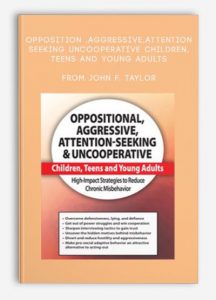 Oppositional, Aggressive, Attention-Seeking & Uncooperative Children, Teens and Young Adults from John F. Taylor
Oppositional, Aggressive, Attention-Seeking & Uncooperative Children, Teens and Young Adults from John F. Taylor
More information about Medical:
Medicine is the science and practice of establishing the diagnosis, prognosis, treatment, and prevention of disease.
Medicine encompasses a variety of health care practices evolved to maintain and restore health by the prevention and treatment of illness.
Contemporary medicine applies biomedical sciences, biomedical research, genetics, and medical technology to diagnose, treat, and prevent injury and disease,
typically through pharmaceuticals or surgery, but also through therapies as diverse as psychotherapy, external splints and traction, medical devices, biologics, and ionizing radiation, amongst others.
Medicine has been around for thousands of years, during most of which it was an art (an area of skill and knowledge) frequently having connections to the religious and
philosophical beliefs of local culture. For example, a medicine man would apply herbs and say prayers for healing, or an ancient philosopher and physician would apply bloodletting according to the theories of humorism.
In recent centuries, since the advent of modern science, most medicine has become a combination of art and science (both basic and applied, under the umbrella of medical science).
While stitching technique for sutures is an art learned through practice, the knowledge of what happens at the cellular and molecular level in the tissues being stitched arises through science.
Outline:
Uncover Misbehavior’s Hidden Motives
- The 5 “needs” that drive all misbehavior
- 15 maladaptive ways teens guard against feeling hurt
- 14 keys to stop misbehavior
Use High-Impact Interviewing
- Respond effectively to “I don’t know”, “It’s not my fault”, and “I don’t care”
- 10 dynamite probes to unearth hidden motives
- Reduce defensiveness and build trust
Improve Social Skills and Self-control
- Bolster temptation resistance
- Sharpen decision-making and problem-solving
- Upgrade apology skills
- Impart healthy handling of anger
Resolve Attention-seeking and Power-displaying behavior
- Effective strategies for “You can’t make me!”
- 16 techniques for the bossy teen
- 10 tools for “notice me more”
Resolve Malicious Misbehavior
- Teach important insights about revenge
- Prevent bullying and threats
- Decrease vandalism
- 9 answers for the “look tough, act tough” teen
Resolve Irresponsible and Self-destructive Misbehavior
- 30 answers for “I can’t do it” cop-outs
- Rebuild self-confidence
- Strengthen stress coping skills
Adapt Your Intervention to Each Client
- Recognize the limitations of every approach
- The client’s unique perspective is pivotal
- Determine how the child perceives the world/people/self
- Interpret the child’s actions as an attempt to express autonomy and belonging
Help Teachers and Parents
- Stay out of “ignore-nag-yell-punish” cycles
- Develop conscience without punishing or attacking
- Refine empathy skills
- Sidestep power struggles
- Improve cooperation with chores and routines
- Reduce sibling rivalry and improve family dynamics
Description:
This recording is for YOU if you work with young adults, teens or children who:
- Debate and invite power struggles with parents or teachers
- Display hostile, angry, revengeful, exploitative or predatory tendencies
- Use silly immature tactics to gain attention and get noticed
- Engage in property destruction, fire-setting, vandalism or animal cruelty
- Have diagnoses such as ADHD, ODD, Bipolar Disorder, or Conduct Disorder
- Act irresponsible, helpless, negligent or tardy
- Snicker at charts-and-stars and other “behavior modification” attempts
Attend this recording and learn a wealth of high-impact techniques that cut across diagnostic lines and apply universally, from early childhood to young adult. Using these techniques will enable you to accomplish quickly what can often be missed in months of regular talk therapies, counseling or behavior modification reward systems.
You’ll learn how to stop pre-delinquent clients’ manipulations such as victim playing, power struggling, denial, minimizing, defiance, evasive lying, excuse making, blaming, and justifying. You’ll learn key strategies for “reading” misbehavior to uncover its underlying needs and motivations. You can share these methods with teachers and parents to free them from “ignore-nag-yell-punish” cycles and senseless power struggles.
Discover powerful techniques to divert and reduce hostility and revenge in oppositional, predatory, violent adolescents and young adults. You’ll be able to introduce pre-social adaptive behaviors that develop conscience and satisfy their unmet needs that trigger misbehavior.


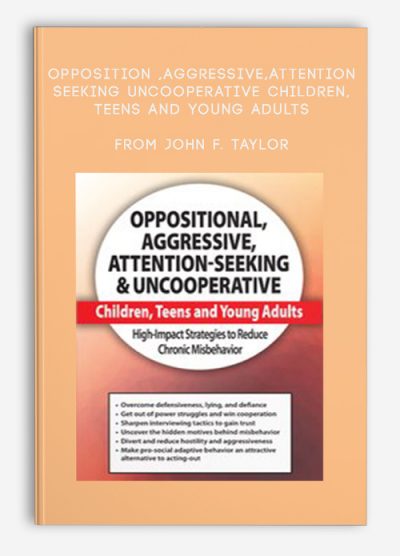

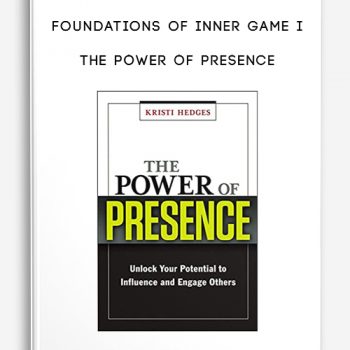

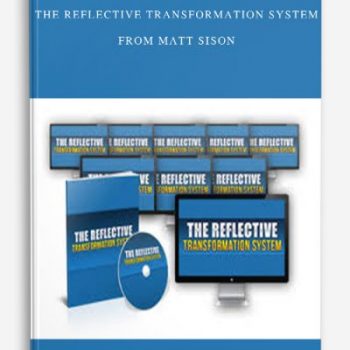





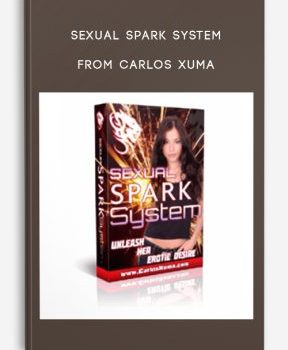
tristian –
This is Digital Download service, the course is available at Coursecui.com and Email download delivery.